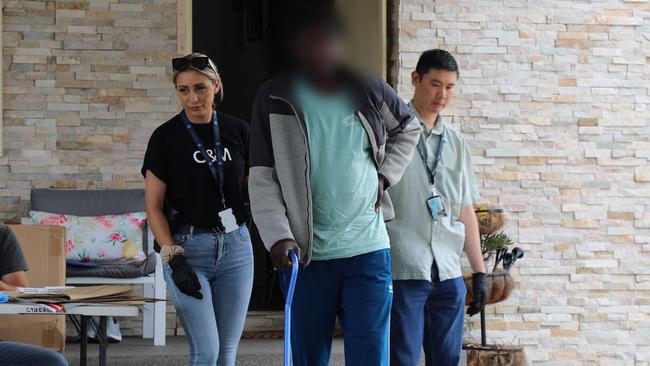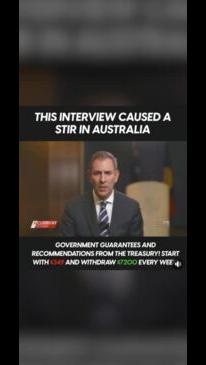Australian money mules arrested for aiding scams
Eighteen Australians who allegedly helped syndicates transfer stolen funds have been charged as part of an operation that has resulted in $2.6m being returned to scam victims.

Eighteen Australian “money mules” who allegedly helped criminal syndicates transfer stolen funds have been arrested and charged as part of an international operation that has resulted in $2.6m being returned to scam victims.
Federal and state police made the arrests over the past two months in NSW, Victoria, Queensland, South Australia, Western Australia and the Northern Territory as part of an annual Europol-led money laundering operation.
Fake job advertisements and romance scams were among the methods used to recruit money mules, Australian Federal Police assistant commissioner Scott Lee said.
“Recruiters will lie and tell potential money mule recruits that their actions are totally legitimate, but they are not,” Assistant Commissioner Lee said.
“We want to warn Australians that if you are transferring potentially stolen money, you are committing an offence and could be looking at serious jail time.
“Money mules could be transferring someone’s stolen life savings or house deposit. Criminals need legitimate bank accounts to transfer their illicit wealth into and they will use any tactic to dupe people into doing their dirty work.”
State and territory police also served 70 warning letters to people suspected of being money mules, and said they uncovered evidence of further crimes including business email compromise, investment scams and sextortion.
Money laundering syndicates recruit money mules to knowingly or unwittingly transfer stolen funds in and out of their own accounts to make the money appear legitimate.
The 18 Australians have been charged with offences including dealing with proceeds of crime, and face a potential maximum penalty of 20 years’ imprisonment, the AFP and state and territory police said in a joint statement.
A record $3.1bn was lost to scams in 2022, according to the Australian Competition & Consumer Commission.
The AFP-led Joint Policing Cybercrime Coordination Centre, which includes all state and territory police, co-ordinated the Australian arrests as part of the annual Europol-led operation known as European Money Mule Action 9 (EMMA9).
More than 1000 people were arrested worldwide, 474 alleged money mule recruiters were identified, and almost 32 million euros ($52.5m) in losses were prevented.

The AFP said it used intelligence gained from other cybercrime investigations and last year’s EMMA8 operation to develop targets.
Victims of scams are sometimes approached by criminal syndicates to become money mules as a way to recover some of their funds.
Victoria Police Detective Superintendent Tim McKinney said Australians and their legitimate bank accounts were being used to move the proceeds of crimes including sextortions, text messaging and email scams, virtual kidnappings, fake job advertisements and romance scams.
“By routing it through a legitimate account held in Australia, it helps to obfuscate the flow of money, making it difficult to track,” Superintendent McKinney said.
“Unfortunately, the reality is that people transferring these funds are money mules, and these scams are a cover for criminals’ money laundering efforts.
“Money mules, even unsuspecting ones, should understand that they are complicit in serious crimes, and will be targeted accordingly.”
Tasmania Police crime and intelligence commander Ian Whish Wilson said $150,000 a local business lost to a business email compromise scam had been recovered last month.
“Tasmania Police also served three mule disruption notices to local residents, who had received money through online scams,” he said.
Queensland Police Detective Acting Superintendent Kerry Lofdahl said people should “not under any circumstances allow third parties to move money through their accounts”.







